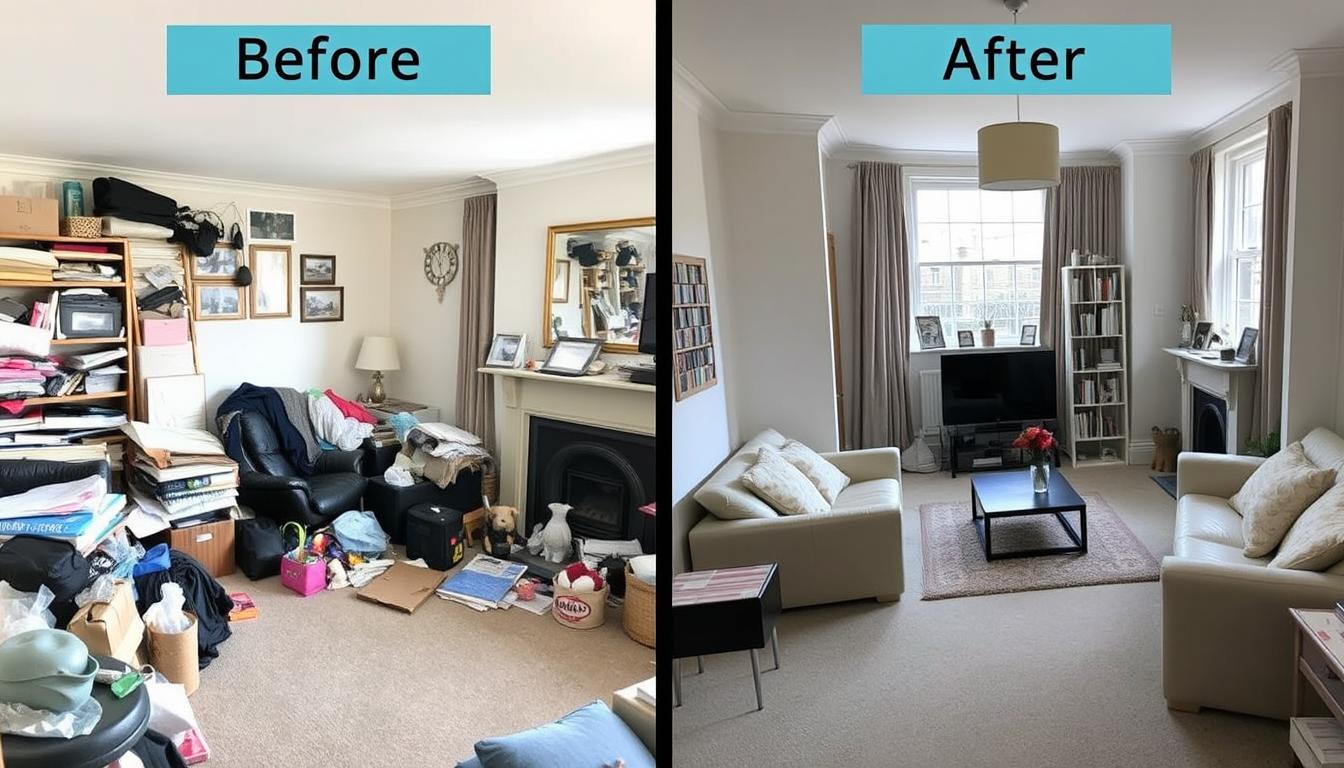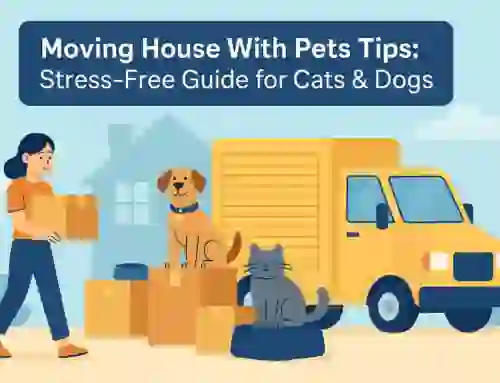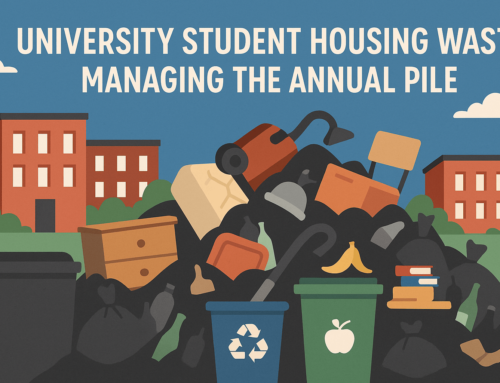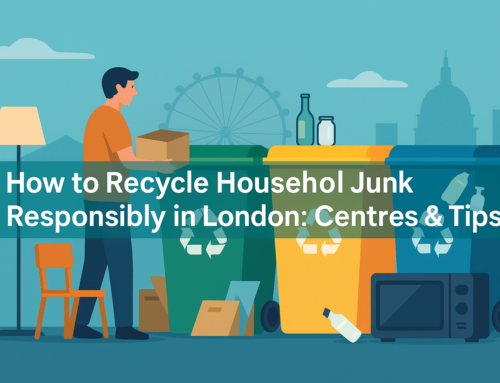Life in London is exciting, vibrant, and full of opportunities—but space is a luxury. From compact studios in Camden to terraced houses in Fulham, homes fill up quickly with possessions we may no longer need. That’s why many people turn to guilt-free clearance in London, a mindful approach to letting go that focuses not only on removing clutter but also on easing the emotional weight of parting with belongings.

Clearing space is rarely just about bags and boxes—it’s about memories, guilt, and the identity we attach to our possessions. This guide explores how Londoners can approach clearance with compassion, using mindful techniques, structured checklists, and professional services that make the process less stressful and more rewarding.
Why Clearance Feels So Difficult
When people think about decluttering, they often picture bags of rubbish and recycling bins. In reality, the challenge is emotional.
Emotional Attachments
- Sentimental value: A child’s first artwork, a parent’s heirloom, or old love letters can feel impossible to discard.
- Financial guilt: Items that cost a lot may carry shame if we never used them.
- Gift obligation: Presents from loved ones create pressure to hold on, even if they serve no purpose.
- Future potential: The “What if I need this someday?” thought keeps drawers overflowing.
Psychological research shows that our brains integrate possessions into our sense of self. Discarding something can feel like losing part of our identity, which explains the guilt so many Londoners feel when tackling clearance.
Shifting the Mindset
The first step in guilt-free clearance is changing how you see the process. Rather than focusing on what’s being lost, view it as a transition toward a lighter, more intentional lifestyle.
Four Techniques That Help
- Gratitude Rituals – Before parting with an item, thank it for its role in your life. Acknowledge that it served its purpose.
- Legacy Thinking – Consider whether a possession is honoured more in storage or by being used by someone else.
- Documentation – Photograph sentimental items. The memory is preserved without keeping the object.
- Transition Perspective – Recognise clearance as creating new space for experiences, not erasing history.
By reframing the process, clearance becomes an act of renewal, not loss.
Choosing Compassionate Clearance Services

Not all removal services are the same. In recent years, London has seen the rise of companies that specialise in sensitive, eco-friendly clearance. These providers don’t just haul things away—they ensure items are donated, recycled, or repurposed wherever possible.
| Service | Focus | Special Feature |
|---|---|---|
| Clear Conscience Removals | Ethical disposal | Catalogues heirlooms, donates to charities |
| GreenClear London | Eco-transparency | Reports showing recycling & landfill percentages |
| Mindful Movers | Emotional support | Digital photobooks of sentimental items |
These services recognise that clearance is often emotional and provide the reassurance that possessions will have a meaningful second life.
Many providers now specialise in guilt-free clearance London, ensuring items are donated or recycled instead of sent to landfill.
The Mindful Disposal Checklist
Breaking clearance into smaller, structured steps makes it less overwhelming.
Step 1: Emotional Preparation
- Set a clear intention, such as “I’m creating space for new beginnings.”
- Work in short sessions of two to three hours.
- Invite a supportive friend to help.
- Create a calm environment with light, music, and refreshments.
Step 2: Sorting System
Use five categories: Keep, Donate, Sell, Recycle, Dispose.
Ask yourself:
- Does this reflect who I am today?
- Would I buy this again now?
- Does it serve my future or just anchor me to the past?
- Is the memory in me or in the item?
Step 3: Removal and Reuse
- Research London clearance services that align with your values.
- Ask about their donation and recycling practices.
- Choose providers that understand the emotional side of letting go.
Step 4: Embracing New Space
- Pause and appreciate the cleared area.
- Set intentions for how you’ll use the space.
- Mark the change with a ritual—such as moving furniture or lighting a candle.
- Build habits to prevent clutter from creeping back.
When arranging removal, look for companies that advertise guilt-free clearance London practices, so you know your possessions are handled with care.
Real-Life Experiences
Stories from other Londoners can provide reassurance that letting go doesn’t have to mean loss.
- James, Hackney: “After my divorce, I couldn’t face sorting through old belongings. The clearance team photographed meaningful items before rehoming them. For the first time in years, my flat feels truly mine.”
- Amara, Brixton: “I’ve always been a collector, especially of vinyl records. Using a checklist, I realised only 20% truly mattered. Now I have room to breathe, and the rest of my collection is enjoyed by others.”
- Thomas, Fulham: “Clearing my grandmother’s house was overwhelming. A company provided a recycling report, showing exactly where items went. That transparency gave me unexpected peace.”
Common Success Patterns
| Approach | Why It Works |
|---|---|
| Documenting items | Keeps the memory without clutter |
| Ethical services | Reassures that possessions are respected |
| Gradual progress | Prevents decision fatigue |
| Focusing on freedom | Reframes clearance as gain, not loss |
| Donating | Creates satisfaction from helping others |
The Benefits of Mindful Clearance

Emotional Wellbeing
Decluttering reduces stress, helps concentration, and creates a sense of calm. In a city as busy as London, that peace of mind is invaluable.
Financial Advantages
Selling unwanted items through platforms like Gumtree or eBay can generate extra income.
Environmental Responsibility
Eco-conscious clearance prevents landfill waste. Services like Recycle Now guide Londoners toward sustainable options.
Community Value
Donating furniture, clothing, or electronics to charities such as the British Heart Foundation ensures items directly benefit others.
Preventing Clutter from Returning
- One in, one out – Each new item should replace an old one.
- Seasonal reviews – Go through wardrobes, cupboards, and storage every six months.
- Digital storage – Scan papers and photos instead of keeping physical copies.
- Conscious shopping – Before purchasing, ask: “Will this truly add value to my life?”
Creating Homes That Reflect the Present
The aim of guilt-free clearance is not to empty your life but to shape it intentionally. Keep the possessions that enrich your daily experience, let go of what no longer serves you, and create space that supports your current lifestyle.
When done with compassion, clearance is less about rubbish bags and more about reclaiming control. It’s about building homes that reflect who we are today, not who we were years ago.
Conclusion
Clearance is never just about objects. It’s about memories, identity, and change. Yet with mindful approaches, structured checklists, and the support of ethical services, Londoners can let go without guilt.
By creating physical space, we also open emotional space—for new experiences, relationships, and opportunities. Guilt-free clearance is, at its heart, an act of self-care: a way of stepping into the future lighter, freer, and more intentional.
By embracing guilt-free clearance London, you can free space in your home while also feeling lighter emotionally.





